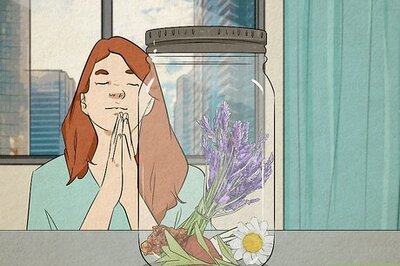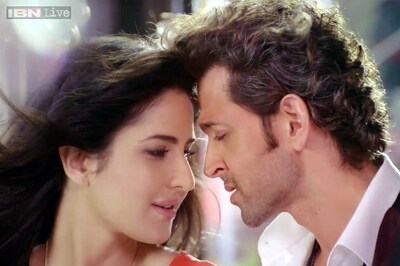
views
I don’t know what Bombay poet means. I have no patience for that,” says poet Ranjit Hoskote on the various tags that artistes get assigned. Hoskote, who is in Jaipur for this year’s Jaipur Literature Festival, was announced as the winner of the 7th Mahakavi Kanhaiyalal Sethia Poetry Award 2022. In an interview, he talks about his influences and the role of poetry in the modern world: Excerpts:
Was the pandemic a creatively satisfying period for you?
In all honesty, yes. It is difficult to say this because the pandemic was a brutal time for people who are vulnerable. So, against that context it is very self-indulgent to say that it was a productive time. But speaking in terms of my practices of writing, despite the anxieties of the time, the knowledge that millions of people were suffering, the imposition of that claustrophobia actually was productive.
Many went back to re-reading… Was that something you resorted to as well?
Very much so. Reading and re-reading. It also meant going back to thinkers who were very important to me. I went back to texts which had different kinds of emotional meaning. It could be The Wind in the Willows which is a childhood classic that I have always loved which I re-read. But it also meant revisiting certain writings of Ambedkar which stands out as crucially important in these times. It meant going back to Susan Sontag. Sometimes you want to go back to these works and see if they mean the same thing or do they mean something else.
It is interesting that you mention Ambedkar. The writings by leaders of the Independence movement continue to find a place in the modern world…
They were genuine thinkers. Of course, they were involved in politics but they were genuine thinkers. They had genuine ideals that had larger objectives. And the prose is beautiful. In each case it is powerful. Ambedkar’s prose has a robust character to it, a sign of critique, the way he martials his arguments with evidence, it is extraordinary writing. As is Nehru’s for different reasons. There’s an elegance to his writing, there is passion in his prose, it is evocative. Gandhi’s is untiring in its desire to come to grips with conflicts and crisis. Tagore, again, is someone who is very important to me. So yes, in the Indian context these were the figures I went back to.
What do you make of the term Bombay Poets?
I don’t know what Bombay poet means. I have no patience for that. It’s like when people speak about the Progressive Artists. It is convenient as a general description. I don’t see myself as a Bombay poet. I don’t see myself as a city poet. My work has very little to do with that. They are not works about urban experience.
You had mentioned in an interview about the public response being ambivalent towards poetry. In a country like India, where there is such a rich tradition of poetry, why do you think that is?
Within the kind of urban, or for lack of a better word, educated context, that has to do with devaluing of the arts and humanities. So there is a general suspicion of anything that is immediately not useful. This whole debate is meaningless. You need the sciences as much as you need the arts and humanities. We unfortunately are pushed by our deplorable education system to make a choice. The larger problem may be that you are looking at a schism between a world of print and a world of performative literature.
Read all the Latest Lifestyle News and Breaking News here



















Comments
0 comment